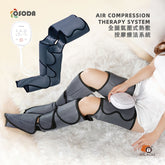Sitting the Month: A Hong Kong Mother's Guide to Postpartum Confinement
by
chart liam8
18 Sep 2024
Dear expectant and new mothers, congratulations on reaching one of the most beautiful moments in life – becoming a mother! I'm sure you're both excited and nervous about the upcoming postpartum confinement period. Today, I'd like to share my experience and insights about "sitting the month" to provide you with some useful information and advice.
What is "Sitting the Month"?
"Sitting the month" or "zuo yuezi" is a traditional Chinese postpartum recovery practice that typically lasts for about one month after childbirth. This period is primarily intended to allow the mother's body to rest and recuperate, regain strength, and prepare for the upcoming challenges of childcare. In Hong Kong, despite the fast-paced lifestyle, many families still value this traditional custom.
The Importance of Postpartum Confinement
Physical Recovery: Childbirth depletes a lot of energy, and this period allows the body to rest and recover fully.
Body Conditioning: Proper diet and care can help with uterine contraction and promote milk production.
Disease Prevention: The immune system is weaker after childbirth, making it easier to catch colds. Confinement can reduce the risk of illness.
Learning Childcare: This time allows you to gradually adapt to caring for your baby and learn parenting skills.
Emotional Adjustment: Postpartum mood swings are common, and confinement provides a period of care and support from family.
Key Considerations During Confinement
Dietary Care
Drink plenty of soups: Fish soup, pig's feet with ginger and vinegar soup, etc., to replenish nutrients and fluids.
Choose easily digestible foods: Lean meat, chicken, fish, etc.
Moderate consumption of supplements: Red dates, longan, peanuts, etc.
Avoid raw, cold, and spicy foods.
Be mindful of food hygiene to prevent diarrhea.
Personal Hygiene
Stay dry: Change clothes frequently to avoid catching a chill.
Moderate cleaning: Sponge baths are okay, but immediate showering or hair washing is not recommended.
Wound care: C-section mothers should pay extra attention to incision cleaning and care.
Rest and Activity
Sufficient sleep: Try to synchronize sleep patterns with the baby.
Moderate activity: Avoid prolonged bed rest; light stretching exercises are beneficial.
Avoid prolonged sitting or standing: This can lead to back pain.
Psychological Adjustment
Maintain a positive mood: Communicate with family and share your joy.
Relaxation: Listen to music, read books, etc.
Accept body changes: Don't put too much pressure on yourself.
Breastfeeding Tips
Correct posture: Prevent blocked milk ducts.
Feed on demand: Increase milk production.
Breast care: Keep clean to prevent mastitis.
Personal Experiences and Tips
As a Hong Kong mother, I understand that postpartum confinement can be challenging in our busy urban life. Here are some of my personal experiences and tips:
Prepare in Advance
Start preparing confinement supplies during late pregnancy, such as:
Sanitary products: Maternity pads, sanitary napkins, etc.
Breastfeeding supplies: Nursing clothes, breast pads, etc.
Baby essentials: Diapers, clothes, bottles, etc.
Confinement meal ingredients or contact information for meal delivery services.
Seek Help
Family support: If possible, ask your mother or mother-in-law to help.
Hire a confinement nanny: Consider hiring a professional, but book early.
Partner's involvement: Let your partner participate in childcare to share the load.
Adjust Your Mindset
Accept imperfection: Don't aim for perfection; give yourself and the baby time to adjust.
Be patient: Challenges are normal for new parents; patience is key.
Moderate socializing: Video calls with friends can help alleviate feelings of isolation.
Leverage Technology
Parenting apps: Record baby's feeding, diaper changes, etc.
Online shopping: Convenient for purchasing necessary items.
Online consultation: Consult online doctors or parenting experts when needed.
Consider Seasonal Factors
Hong Kong's weather can be unpredictable, so during confinement:
Summer: Stay cool, ensure ventilation but avoid direct drafts.
Winter: Keep warm, but don't overheat.
Rainy season: Prevent dampness, keep the room dry.
Balance Tradition and Modernity
Moderate adherence to traditions: Such as dietary supplements and avoiding drafts.
Incorporate modern advice: Like moderate exercise and scientific breastfeeding methods.
Make rational choices: Don't blindly follow traditions; decide based on your situation.
Self-Care
Skin care: Prevent stretch marks, maintain skin elasticity.
Hair care: Consider a shorter hairstyle for easier maintenance.
Dress comfortably: Wear comfortable but presentable clothes to maintain a good mood.
Frequently Asked Questions
Q1: Does confinement have to last exactly one month?
A: Not necessarily. You can decide based on your recovery and family circumstances. Generally, at least 2-3 weeks is recommended.
Q2: Can I use my phone or watch TV during confinement?
A: Yes, but be mindful of time and distance to avoid eye strain. Prioritize rest.
Q3: What if I don't have enough breast milk?
A: You can try adjusting your diet, increasing feeding frequency, and maintaining a positive mood to boost milk production. Supplement with formula if necessary.
Q4: How should I deal with postpartum depression?
A: Communicate with family promptly and seek professional counseling if needed. It's a common issue, so don't feel burdened.
Q5: Can I shower during confinement?
A: Yes, but be mindful of water temperature and duration. Start with sponge baths and gradually transition to showers.
Conclusion
The postpartum confinement period is a unique time filled with both joy and challenges. I hope this article helps Hong Kong mothers navigate this period more smoothly. Remember, everyone's situation is different, so it's crucial to listen to your body and find what works best for you. Best wishes to all new mothers for a smooth confinement period and healthy growth for your babies!
If you found this article helpful, please share it with your expectant mother friends. If you have any questions or want to share your experiences, feel free to leave a comment below. Let's support each other and grow together in this journey of motherhood!
What is "Sitting the Month"?
"Sitting the month" or "zuo yuezi" is a traditional Chinese postpartum recovery practice that typically lasts for about one month after childbirth. This period is primarily intended to allow the mother's body to rest and recuperate, regain strength, and prepare for the upcoming challenges of childcare. In Hong Kong, despite the fast-paced lifestyle, many families still value this traditional custom.
The Importance of Postpartum Confinement
Physical Recovery: Childbirth depletes a lot of energy, and this period allows the body to rest and recover fully.
Body Conditioning: Proper diet and care can help with uterine contraction and promote milk production.
Disease Prevention: The immune system is weaker after childbirth, making it easier to catch colds. Confinement can reduce the risk of illness.
Learning Childcare: This time allows you to gradually adapt to caring for your baby and learn parenting skills.
Emotional Adjustment: Postpartum mood swings are common, and confinement provides a period of care and support from family.
Key Considerations During Confinement
Dietary Care
Drink plenty of soups: Fish soup, pig's feet with ginger and vinegar soup, etc., to replenish nutrients and fluids.
Choose easily digestible foods: Lean meat, chicken, fish, etc.
Moderate consumption of supplements: Red dates, longan, peanuts, etc.
Avoid raw, cold, and spicy foods.
Be mindful of food hygiene to prevent diarrhea.
Personal Hygiene
Stay dry: Change clothes frequently to avoid catching a chill.
Moderate cleaning: Sponge baths are okay, but immediate showering or hair washing is not recommended.
Wound care: C-section mothers should pay extra attention to incision cleaning and care.
Rest and Activity
Sufficient sleep: Try to synchronize sleep patterns with the baby.
Moderate activity: Avoid prolonged bed rest; light stretching exercises are beneficial.
Avoid prolonged sitting or standing: This can lead to back pain.
Psychological Adjustment
Maintain a positive mood: Communicate with family and share your joy.
Relaxation: Listen to music, read books, etc.
Accept body changes: Don't put too much pressure on yourself.
Breastfeeding Tips
Correct posture: Prevent blocked milk ducts.
Feed on demand: Increase milk production.
Breast care: Keep clean to prevent mastitis.
Personal Experiences and Tips
As a Hong Kong mother, I understand that postpartum confinement can be challenging in our busy urban life. Here are some of my personal experiences and tips:
Prepare in Advance
Start preparing confinement supplies during late pregnancy, such as:
Sanitary products: Maternity pads, sanitary napkins, etc.
Breastfeeding supplies: Nursing clothes, breast pads, etc.
Baby essentials: Diapers, clothes, bottles, etc.
Confinement meal ingredients or contact information for meal delivery services.
Seek Help
Family support: If possible, ask your mother or mother-in-law to help.
Hire a confinement nanny: Consider hiring a professional, but book early.
Partner's involvement: Let your partner participate in childcare to share the load.
Adjust Your Mindset
Accept imperfection: Don't aim for perfection; give yourself and the baby time to adjust.
Be patient: Challenges are normal for new parents; patience is key.
Moderate socializing: Video calls with friends can help alleviate feelings of isolation.
Leverage Technology
Parenting apps: Record baby's feeding, diaper changes, etc.
Online shopping: Convenient for purchasing necessary items.
Online consultation: Consult online doctors or parenting experts when needed.
Consider Seasonal Factors
Hong Kong's weather can be unpredictable, so during confinement:
Summer: Stay cool, ensure ventilation but avoid direct drafts.
Winter: Keep warm, but don't overheat.
Rainy season: Prevent dampness, keep the room dry.
Balance Tradition and Modernity
Moderate adherence to traditions: Such as dietary supplements and avoiding drafts.
Incorporate modern advice: Like moderate exercise and scientific breastfeeding methods.
Make rational choices: Don't blindly follow traditions; decide based on your situation.
Self-Care
Skin care: Prevent stretch marks, maintain skin elasticity.
Hair care: Consider a shorter hairstyle for easier maintenance.
Dress comfortably: Wear comfortable but presentable clothes to maintain a good mood.
Frequently Asked Questions
Q1: Does confinement have to last exactly one month?
A: Not necessarily. You can decide based on your recovery and family circumstances. Generally, at least 2-3 weeks is recommended.
Q2: Can I use my phone or watch TV during confinement?
A: Yes, but be mindful of time and distance to avoid eye strain. Prioritize rest.
Q3: What if I don't have enough breast milk?
A: You can try adjusting your diet, increasing feeding frequency, and maintaining a positive mood to boost milk production. Supplement with formula if necessary.
Q4: How should I deal with postpartum depression?
A: Communicate with family promptly and seek professional counseling if needed. It's a common issue, so don't feel burdened.
Q5: Can I shower during confinement?
A: Yes, but be mindful of water temperature and duration. Start with sponge baths and gradually transition to showers.
Conclusion
The postpartum confinement period is a unique time filled with both joy and challenges. I hope this article helps Hong Kong mothers navigate this period more smoothly. Remember, everyone's situation is different, so it's crucial to listen to your body and find what works best for you. Best wishes to all new mothers for a smooth confinement period and healthy growth for your babies!
If you found this article helpful, please share it with your expectant mother friends. If you have any questions or want to share your experiences, feel free to leave a comment below. Let's support each other and grow together in this journey of motherhood!
Beauty & Personal Care Device
Tags:


















